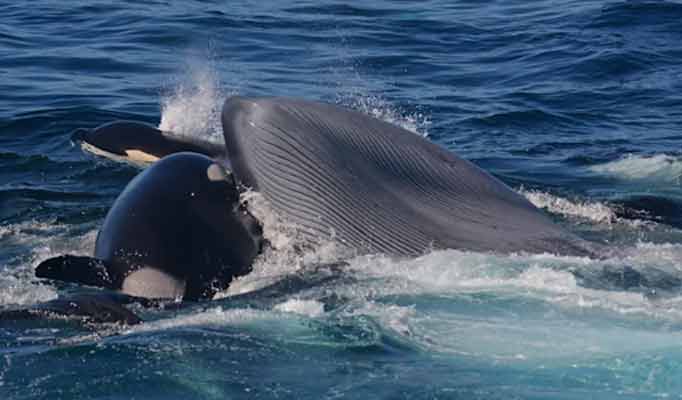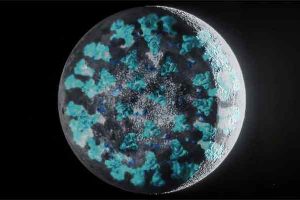
In March 2019, scientists studying whales near Australia stumbled on a supersize spectacle few had seen before — a pod of orcas viciously attacking a blue whale.
Over a dozen orcas surrounded the mighty animal. They had already bitten off its dorsal fin, and the animal was unable to evade the fast and agile predators. The water ran red with the blood of the massive creature, and chunks of its flesh were floating all around. The scientists observed one orca force its way into the blue whale’s mouth and feast on its tongue. It took an hour for the orcas to kill the blue whale, and once they did, about 50 other orcas showed up to devour the carcass.
Orcas, also known as killer whales despite being members of the same family as dolphins, are apex predators known to feed on nearly every species of large whale. But they typically go after calves rather than adults. This was the first time orcas had been observed successfully killing and eating an adult blue whale.
The attack was the first of three such events that were witnessed from 2019 through 2021. These events, described in a paper published last week in the journal Marine Mammal Science, have put to rest a long-standing debate among scientists about whether orcas could make a meal out of an adult blue whale.
A pod of orcas taking down a blue whale is “the biggest predation event on Earth, maybe the biggest one since dinosaurs were here,” said Robert Pitman, a marine ecologist at Oregon State University and an author of the paper.
Anecdotal evidence that orcas are capable of making a meal out of an adult blue whale has long existed, but it wasn’t until 2019 that scientists were able to confirm this through firsthand observation.
“Upon approach, we were astounded at what we were seeing,” said Rebecca Wellard, founder and lead researcher at Project ORCA, who was among the researchers who witnessed the 2019 attack. “When you come across a unique event like this, I think it takes a while to process just what you are seeing.”






